Twenty Seven
Rights Explained
Bill of Rights | Handves van regte | Umtolo wamalungelo wobuntu | Umqulu wamalungelo | Umqulu wamalungelo | Lucwebu lwemalungelo eluntfu | Molao wa ditokelo | Bili ya ditokelo | Molaotlhomo wa ditshwanelo | Mulayotibe wa pfanelo | Nawumbisi wa timfanelo
Click on each icon to learn more about the meaning of each right in our society and its application today.
Individual rights
Socio-economic rights
Political Rights
Group rights
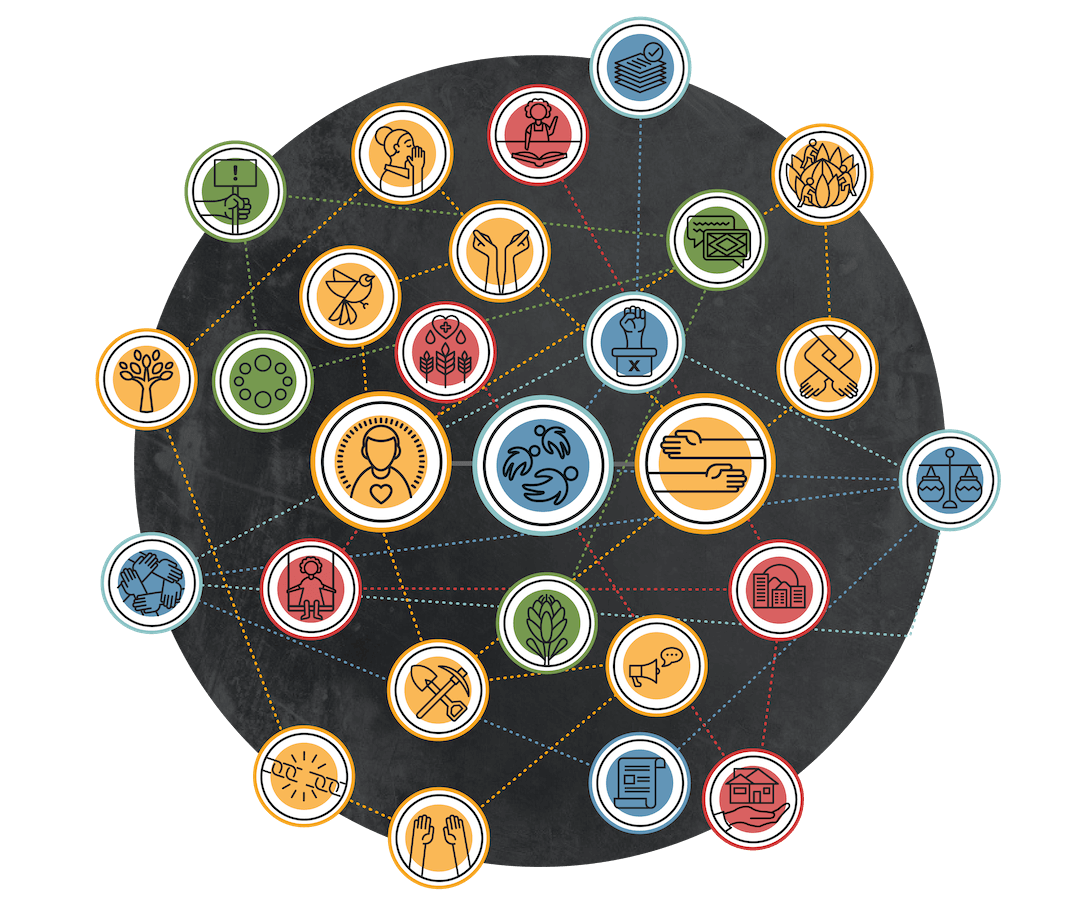
Section 9 – Equality
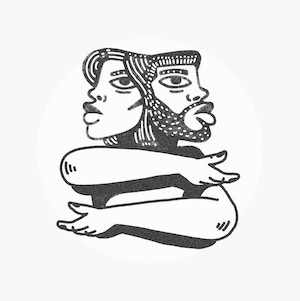
Equality is the first right in the Bill of Rights. Section 9 guarantees equality before the law and freedom from discrimination. The state may not discriminate unfairly either intentionally or indirectly on grounds of race, gender, sex, pregnancy, marital status, ethnic or social origin, colour, sexual orientation, age, disability, religion, conscience, belief, culture, language, and birth.
Apartheid was based on gross inequality and the suppression of the majority on the grounds of race.
Today, the achievement of equality and the enjoyment of the equal benefit of the law, requires that active steps be taken to redress the injustices of the past.
Section 9(2) makes it clear that the state is authorised to adopt active measures that take account of race, gender, and other categories to overcome the disadvantages imposed by unfair discrimination.
Section 9(3) deals with unfair discrimination by the state. Discrimination can be fair, for example children can be denied the vote or access to alcohol.
What the state cannot do is to discriminate against anyone on the grounds listed in this section which include race, gender, sex, pregnancy, marital status, ethnic or social origin, colour, sexual orientation, age, disability, religion, conscience belief, culture, language, and birth.
Parliament is obliged to pass a law to prohibit unfair discrimination in the private sphere, for example hotels and private schools. The Promotion of Equality and Prevention of Unfair Discrimination Act, 2000 (PEPUDA) created equality courts to deal with unfair discrimination in the private sectors of society.
Landmark Cases:
National Coalition for Gay and Lesbian Equality v Minister of Justice | Others 1999 Minister of Home Affairs v Fourie
Section 10 - Human Dignity
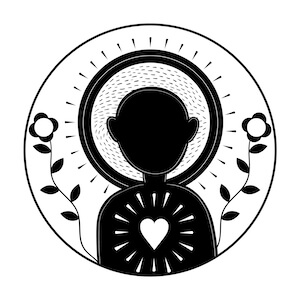
Section 10 states that everyone has the right to have their dignity respected and protected. This right connects with all other rights in the Bill of Rights. Dignity in all human beings is inherent and has been declared ‘non derogable’, which means it cannot be limited under any circumstances.
The right to human dignity is central to our constitutional democracy because of South Africa’s history of the degradation of humanity wrought by colonialism and apartheid. Apartheid damaged both black and white people – stigmatising black people by placing a mark of shame on them, and injuring white people with a false sense of superiority. One of the most extreme forms of indignity was also that imposed on homosexual people who were threatened with criminal prosecution and subjected to social exclusion and disgrace for being who they were.
It is no wonder then that all the rights in the Bill of Rights are underpinned by the right to human dignity, and each and every right can be understood as elaborations of aspects of the right to dignity.
Landmark Cases:
S v Makwanyane
Section 11 - Life
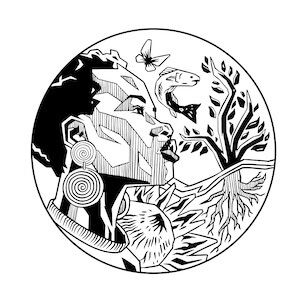
The right to life means that life cannot be taken, not even by the state which has a positive duty to protect the lives of its citizens. The right to life also imposes on the government the duty to make life liveable through socio-economic rights, such as rights to housing, healthcare, food, water, and social security.
Because of South Africa’s dark and violent past, the simple declaration in the Constitution that everyone has the right to life is an important symbolic rebuke of a past that devalued life.
At the time the Constitution came into effect, more than 400 people were on death row in the apartheid era awaiting execution. In its very first case, the Constitutional Court declared the death penalty to be unconstitutional because it violated the rights to life, human dignity, and the right to not be subjected to cruel or inhuman punishment.
Landmark Cases:
S v Makwanyane| Khosa v Minister of Social Development 2004
Section 12 - Freedom and Security of the person
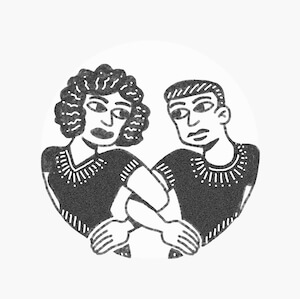
The right to freedom and security of the person means that no one can be deprived arbitrarily of their freedom. This right states that there shall be no detention without trial. People shall be free from violence, whether it’s from public forces or in the home. Torture and cruel or degrading punishment is prohibited. Everyone has the right to bodily and psychological integrity. This right gives constitutional protection to women seeking to terminate their pregnancies within the time periods laid down by the law.
Under apartheid, there was a law that permitted detention without trial in solitary confinement for 90 days at the behest of a senior police officer. It grew to include the Terrorism Act, 1967 which gave the authorities unfettered power to detain persons indefinitely without trial.
Today, any attempt by government to revive laws permitting security forces to function in the way they did under apartheid would be forbidden by these entrenched constitutional provisions. In some countries, the right to freedom is directly connected to absence of state controls in relation to economic activity or use of property. In South Africa it is connected with the security of the person.
Landmark Cases:
S v Makwanyane
Section 13 - Slavery, servitude and forced labour
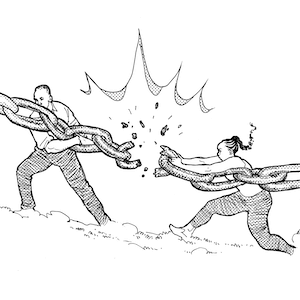
Our Constitution, like many other constitutions, expressly outlaws slavery, servitude, and forced labour. Much of the development of international human rights law was based on the struggle to abolish slavery.
During apartheid, the use of forced labour, including both prisoner and child labour, took place. One of the most famous historical events protesting forced labour was in 1952 when farm labourers refused to work in the potato fields of the Bethal district.
Today, forced labour may take different forms, but essentially it is about a person or a group of people being forced to work against their will. Forced labour is an issue around the world and is connected to another significant human rights issue – human trafficking. Most victims of forced labour are people who are poverty-stricken. The Prevention and Combating of Trafficking in Persons Act, 2013 has been passed to prevent conditions of abduction and effectively enslavement of women and children in particular.
Section 14 - Privacy
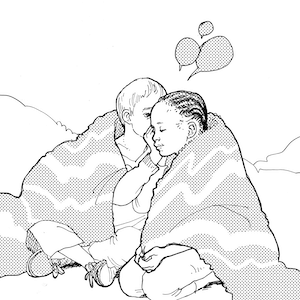
Everyone has the right to privacy and not to have their person, home or property searched or their possessions seized, or the privacy of their communications infringed. Privacy protects us from arbitrary and unjustified use of power by governments, companies, and other actors. At the same time, however, the police have a duty to investigate crime which has to be balanced with the right to privacy.
Under apartheid, the police constantly raided the homes of black people at night demanding their passes. It is against this background that the constitutional right to privacy specifically includes the right to not have your person or home or property searched, and your possessions seized.
Today, activities that restrict the right to privacy, such as surveillance, can only be justified when they are prescribed by law, necessary to achieve a legitimate aim, and proportionate to the aim pursued. The right to privacy also supports and reinforces other rights, such as the right to dignity, freedom of expression, and access to information.
Landmark Cases:
Minister of Justice and Constitutional Development and Others v Prince
Section 15 - Freedom of religion, belief and opinion
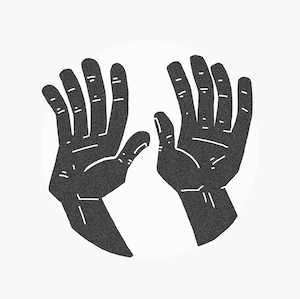
The Constitution recognises that adherence to religion is an important and valued aspect of the lives of many people which should be protected. While the state can take active steps to promote constitutional values, it cannot tell people what they should think and believe, or privilege one religion or set of beliefs over another.
Historically, South Africa promoted Christianity which was given favoured status by the government in many areas of life, regardless of the wide range of religions observed in our society. The Constitution recognises that adherence to religion is an important and valued aspect of the lives of many South Africans.
Today, in light of South Africa’s diversity, the state cannot pick sides in matters of religion, neither between ‘nonbelievers’, nor between other religions. Provision is made for state schools to conduct religious observance provided they do so on an equitable basis and attendance is voluntary. This section also permits Parliament to pass legislation dealing with marriages and family law of any particular religion, subject to the provisions of the Constitution. A law providing for state recognition of Muslim marriages has been under debate.
Landmark Cases:
MEC for Education: KwaZulu-Natal and Others v Pillay
Section 16 - Freedom of Expression
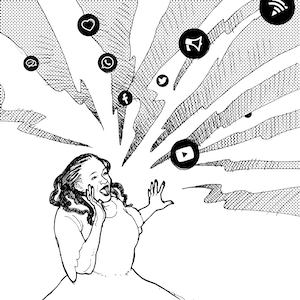
The right to freedom of expression is important because it is the right for one to speak one’s mind freely on important issues in society, access information, and hold those in power accountable. This right plays a vital role in the development of an open democracy. Freedom of expression includes freedom of the press and other media and the right to receive or impart information.
The apartheid state tried to stamp out opposition to its racist policies by means of banning newspapers and controlling the circulation of ideas. Censorship boards told people what books they could read, what films they could watch, or plays they could attend.
Today, freedom of artistic creativity and academic freedom is guaranteed. Protected speech, however, does not include propaganda for war, incitement of imminent violence, or advocacy of hatred that is based on race, ethnicity, gender or religion, that constitutes incitement to cause harm. The question of hate speech in the press and on social media is one that is being hotly debated today in society and in the courts.
Section 17 - Assembly, demonstration, picket and petition
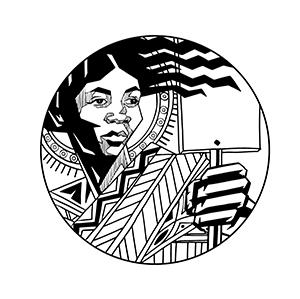
This right means that everyone who is unarmed has the right to assemble with others to demonstrate, picket, and present petitions to others for any lawful purpose. It is only when they have no intention of acting peacefully that they lose their constitutional protection.
Under apartheid, the state strictly regulated and banned public assembly and protest. Despite these measures, they did not succeed in the repression of freedom of expression. Spontaneous and organised protests and demonstrations were important to anti-apartheid activists. During peaceful protests at Sharpeville and Langa townships in 1960 and in the town of Bisho in 1992, people without the vote were left wounded and dead.
Today, the right to assembly is especially important for people to have their voices heard, especially those who are poor and vulnerable and not well represented in political parties or powerful lobby groups.
Section 18 - Freedom of association
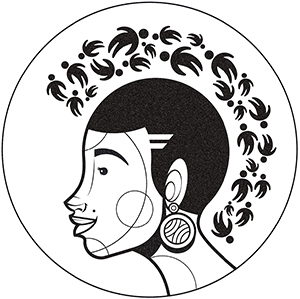
This right means that everyone has the right to join any political party or any other association or voluntary group to advance their interests. But it doesn’t include creating criminal gangs or groups to sow hatred. It exists primarily to give a voice to the powerless. This right will, in many cases, be the only mechanism available to them to express their legitimate concerns.
It is widely recognised that democracy is not possible without freedom of association. The right to freedom of association and the development of trade unionism in South African history is one of the factors that led to the demise of apartheid.
Today, the right to form and join a trade union guarantees this freedom of association for workers. This right is affirmed in section 23(2) of the Constitution, which affords every worker the right to strike. The right to freedom of association is linked to other freedom and rights such as freedom of expression.
Section 19 - Political rights
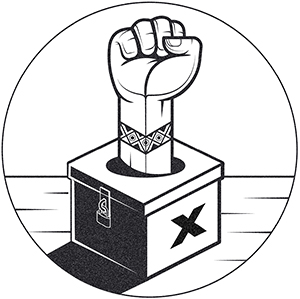
This right provides that every citizen is free to make their own political choices. This includes the right to form, be a part of, or to campaign for a political party. It also guarantees the right to free and fair elections on a regular basis, and the right to vote in secret for citizens 18 years old and over.
The bedrock of colonial and apartheid South Africa’s oppression was the denial of political rights to the majority of its citizens. Following the Sharpeville massacre in 1960, the apartheid government banned the African National Congress (ANC), the Pan Africanist Congress of Azania (PAC), and the South African Communist Party (SACP), and forced the Liberal Party to disband because it allowed black and white people in its ranks.
Today, section 19 gives effect to the broad constitutional commitment to democracy by guaranteeing rights for citizens to participate in representative politics. Section 19 is a right which is fundamental to protecting and maintaining a democratic government. It gives expression to the creed that the “people shall govern.”
Landmark Cases:
August and Another v the Electoral Commission
Section 20 - Citizenship
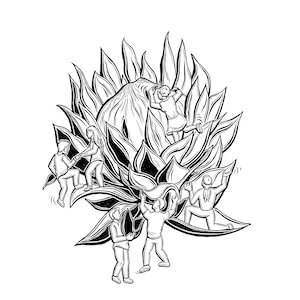
This right guarantees a common South African citizenship. All citizens are equally entitled to the rights and privileges of citizenship, and are equally subjected to the duties and responsibilities that attach to citizenship.
The apartheid government denied citizenship to the great majority of black people, saying that they could only be citizens in their tribal homelands. In addition, many people who left the country because of their opposition to apartheid had their South African citizenship taken away from them and were rendered stateless.
Today, whether you became a citizen by birth or acquired it, the government cannot take it away from you. Citizenship creates a legal link between a state and the people considered to be its nationals. States are required to protect their citizens internationally. The fact that the Constitution makes a distinction between citizens and non-citizens in respect of certain rights should not be interpreted to mean that non-citizens are accorded inferior status regarding their human rights. For example, the courts have recognised that dignity has no nationality. It is inherent in all people.
Section 21 - Freedom of Movement and Residence
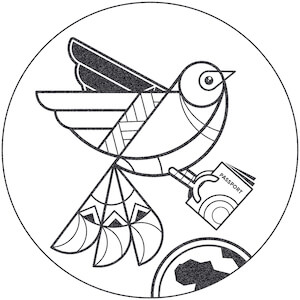
This right means that South Africans can move freely and choose their place of residence within the borders of a country, and also have the right to leave the country and to return to it. Section 21 permits citizens the right to enter the country. The right to remain and reside in the country does not exclude the government’s power to extradite a South African citizen who has committed a crime elsewhere.
As apartheid demonstrates, freedom of movement and residence is one of the first targets of an authoritarian state. For decades, repressive laws ensured that the movement of black people was severely restricted. Security legislation also permitted the banishment of political activists to certain areas. Passports to travel abroad were refused to anti-apartheid activists.
Today, while the rights to freedom of movement and to leave the Republic are available to everyone, only citizens have the right to a passport and the right to enter, remain in, and reside in the Republic. There is no automatic right to enter a country of which one is not a citizen or national. A refugee may not be refused entry into the country, be expelled or extradited or returned to a country where he/she will be subjected to persecution on account of his/her race, religion, nationality, political opinion, or membership of a particular social group, or his/her life, physical safety, or freedom would be threatened.
Section 22 - Freedom of Trade
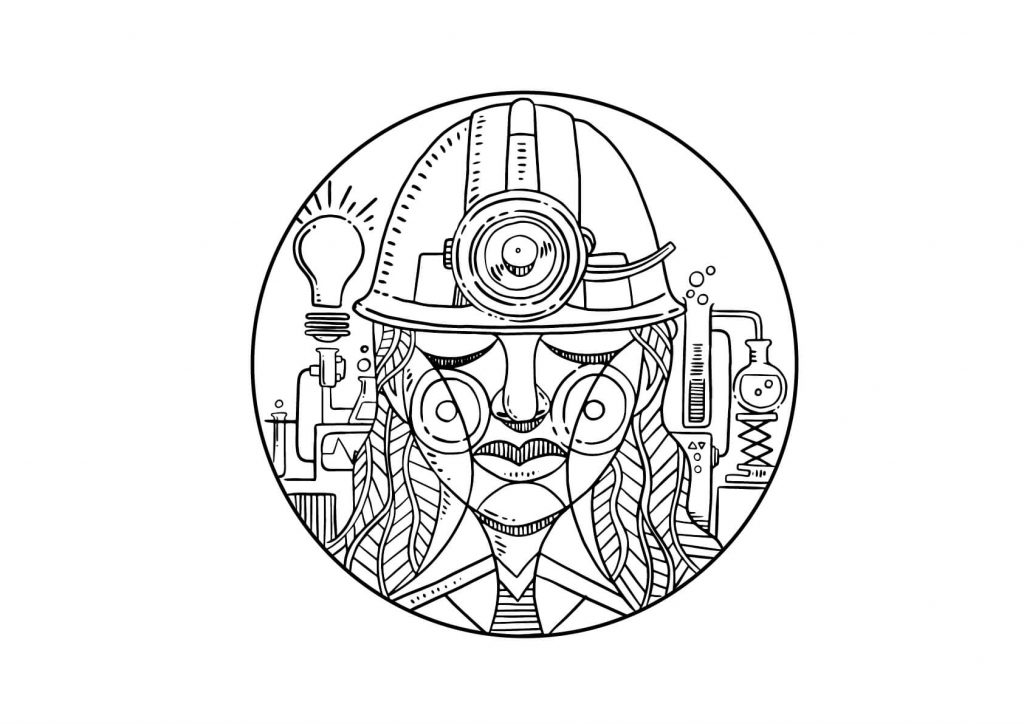
The freedom to have an occupation, trade or profession is, for many, the entry point of enjoying the other rights guaranteed in the Constitution. It is therefore more than the ability to provide materially for oneself. This right is aimed at enabling individuals to live dignified and fulfilling lives.
Because black people were seen as intellectually inferior under apartheid, they were restricted to the lowest paying, physically demanding, and most hazardous jobs. Skilled jobs in the mines and factories were reserved for white people only. Women were also kept out of many professions and jobs because they were generally considered the weaker sex intellectually and physically. Black people could only trade in what were called the native locations if they had permits from the white administrators in charge of the townships.
Today, people are free to choose their trade, occupation, or profession and to trade wherever they want in accordance with the law.
Section 23 - Labour
This right extensively protects workers and guarantees their right to fair labour practices, to form and join trade unions, and to participate in union activities and strikes. Post apartheid, the review of the labour legislation framework was a priority. Labour relations and labour policies have changed significantly from that which prevailed under the apartheid government.
Under apartheid, the Masters and Servants laws made it a criminal offence for a servant to talk back to their ‘masters’. Black trade unions were banned. And black workers experienced the most oppressive labour conditions.
Today, all workers have the right to fair labour practices. This means that workers have the right to form trade unions, go on strike, create independent federations, and take part in collective bargaining. Parliament has passed laws to protect workers’ rights through a system of conciliation and arbitration within tribunals. Employers also have the right to form independent federations.
Section 24 - A Safe and Clean Environment
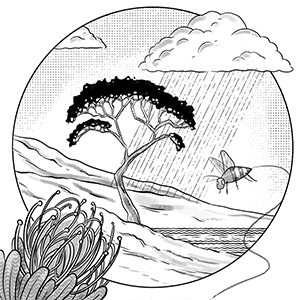
This right provides that everyone has the right to a safe and clean environment. It also says that the people have the right to laws that will prevent pollution, protect the environment for present and future generations, and also ensure sustainable development of resources for the benefit of all people and the environment. Ours is one of the first constitutions in the world to protect the environment for present and future generations.
The United Nations has said that climate change is the defining issue of our time, and that the world is at a defining moment. From shifting weather patterns that threaten food production, to rising sea levels, the impacts of climate change are global in scope and unprecedented in scale. Without drastic action today, adapting to these impacts in the future will be more difficult and costly.
This right recognises the need for economic development, but states that it must take place in a sustainable way which causes the least possible damage to our air, water, and earth. One of the laws introduced to give effect to this constitutional right is the National Environmental Management Act, 1998 (NEMA) which requires all development to be socially, economically, and environmentally sustainable.
Section 25 - Property
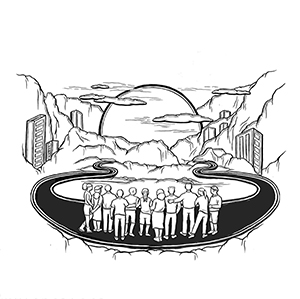
The main thrust of this right is to facilitate land reform. Section 25 contains eight sub-sections, making the property clause one of the longest in the Bill of Rights.
This right provides that no one can be arbitrarily deprived of property, but that property can be expropriated in the public interest for purposes of land reform. It also requires the state to upgrade the titles that black people have to land. It places a duty on the state to facilitate access to land for people who were historically dispossessed of land. It establishes mechanisms for people whose rights to land were taken away by racist laws after 1912 to get their land back or be compensated for the land.
Prior to 1994, the law reserved 87% of South Africa’s landmass for white people only. Dispossession of land was one of the key pillars of the colonial and apartheid systems. One of the most pressing issues during South Africa’s transition from apartheid to a constitutional democracy was the need for major restitution and redistribution of land to correct the historical injustices of colonialism and apartheid.
Section 25 does not require that market value be paid for land as popularly believed. If the amount cannot be agreed to by the parties, then the amount to be paid for land expropriation must be fixed by a court which must balance the public’s interest against the interest of the landowner. Nothing in this section prevents the courts from ordering that no compensation should be paid to the landowner.
At present, Parliament is considering an amendment to section 25 which would make it clear beyond doubt the circumstances in which expropriation can take place without compensation.
Landmark Cases:
Daniels v Scribante
Section 26 - Housing

This right provides that everyone has the right to access adequate housing. This means more than just being given a house by the government. It also means that the government has to make land available for the house, and has to provide services like water and sewage. Section 26(1) also provides important protections against eviction of people from their homes.
Under apartheid, the law required housing segregation, which meant that non-whites could not live in white designated areas, but had to live in designated non-white townships or in impoverished rural areas known as Bantustans or homelands. Very little housing was provided for black people. The quality of housing in the black townships was inadequate and sub-standard.
Today, the democratic government, in fulfilling its constitutional duties enshrined in this right, has provided approximately 3.5 million homes without cost to people living in informal settlements – a quarter of the population has received what is called ‘RDP housing’.
This right does not however mean that the government has to provide every person with a free house if they demand it. If someone is able to buy or rent their own house, they have to do this for themselves. A person only qualifies for government housing if they earn under a certain amount as determined by government policy and legislation. The government has to direct its attention to those without sufficient means and without access to housing.
This right provides that the government must take reasonable steps, within the resources available to it, to make sure that people are given housing. This means that the government only has to provide housing to people when it has the means to do this.
Landmark Cases:
Government of RSA and others v Grootboom | Abahlali Basemjondolo Movement SA v Premier of the Province of KwaZulu Natal
Section 27 - Healthcare, Food and Water
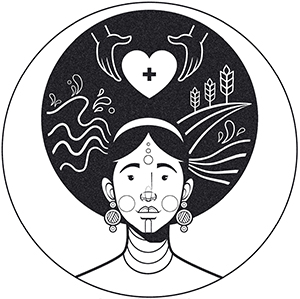
This right provides that everyone has the right to access healthcare, emergency medical treatment, sufficient food, water, and social security. These rights are called “socio-economic rights”. They were included in the Constitution to improve the quality of life of all people, especially those who were previously disadvantaged and who are impoverished today.
Under apartheid, the majority of the country was denied adequate healthcare with many black people confined to their small and under-resourced community clinics for their needs. Because of the crushing poverty under which black people lived under apartheid, many went hungry with no guaranteed access to food or water.
Today, the government has a duty, in certain circumstances, to provide access to healthcare, food, water, and social security to the people. It does not however have to provide these things to everyone immediately upon demand – the government only has to provide these services in a reasonable manner within its available resources.
This right has allowed many communities to challenge the government on important issues including a health crisis that affected the whole country. In the early 2000s, the Treatment Action Campaign challenged the government’s decision to hold back the rollout of antiretrovirals (ARVs) to pregnant women living with HIV who were about to give birth. The Constitutional Court decided that this denial violated the right to health of the women as well as the children to be born. Because of this challenge, South Africa now has one of the best ARV programmes in the world.
Recognition of the right to social security has led to grants being paid to children, disabled people, and elderly persons who make up about 30% of the population.
Landmark Cases:
Soobramoney v Minister of Health, KwaZulu-Natal | Minister of Health v Treatment Action Campaign | Khosa and others v Minister of Social Development | Khosa and others v Minister of Social Development Black Sash Trust v Minister of Social Development
Section 28 - Children’s Rights
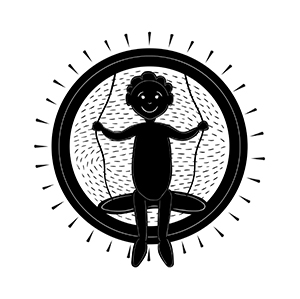
This right recognises that children need special protection due to their vulnerability. Except for a few rights which apply specifically to adults, children have all the rights that adults have. Section 28 is special because it gives extra rights to children on top of the rights which both adults and children have.
Apartheid did not spare black children from oppression because they were children. Black children were left unprotected from the brutality of apartheid. Today, children are given many special protections. They have a right to a name and nationality, to family care or appropriate alternative care, to basic nutrition, shelter and healthcare, and to protection from ill treatment, abuse and labour exploitation. They are also given special protection in relation to the criminal justice system, and in all court cases concerning the child, the child’s best interests are deemed to be of paramount importance. The Children’s Act 38 of 2005 helps to explain section 28 in more detail.
Section 29 - Education

This right ensures that every person has access to a basic education, including adult basic education, and to further education, which the state must make progressively available and accessible. This right also protects the right to establish self-financed and independent educational institutions, provided that they do not discriminate on the basis of race, are registered with the state, and maintain or exceed the standards comparable to those of public institutions.
Under apartheid, the education system was racially divided and white schools were given the bulk of the resources. The right to education is therefore extremely important in order to create an equal society. Basic education means that school attendance is compulsory for learners from the age of seven until the age of 15 years or until the learner reaches the ninth grade, whichever occurs first.
During the making of the Constitution, there were intense debates about single medium schools in the public schools’ sector. Defenders of the Afrikaans language were worried that the language would disappear if single medium schools were not permitted. The compromise was that single medium instruction could be considered, taking into account the history of discrimination in South Africa, equity, and practicability.
Section 30 - Language and Culture

This right guarantees that individuals can use their language and participate in the culture of their choice. The Constitution seeks to create a society where all of South Africa’s diverse ethnic and cultural groups have the right to “enjoy his or her own culture, to profess and to use his or her own language.
The colonial and apartheid governments enforced assimilation into white culture through its imposition of colonial languages such as Afrikaans and English.
Today, the Constitution requires that effective access to the right to be instructed in an official language of choice must be given effect to, but without undermining equitable access, preserving exclusivity or perpetuating racial supremacy. Inequitable access and the fuelling of racial disharmony would thus be the ‘appropriate justification’ for diminishing the already existing enjoyment of the right to be taught in one’s mother tongue.
The Constitution seeks to create a multi-cultural and multilingual society where all languages and cultures are held to the same esteem.
Section 31 - Cultural, Religious and Linguistic Communities
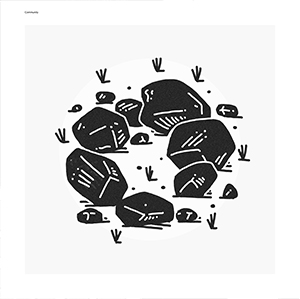
This right guarantees that communities can participate in the culture and religion of their choice. South Africa is a religious and culturally diverse country where all cultural, religious, and other belief systems have to be accorded equal constitutional protection.
Under colonialism and apartheid, the government was not sensitive to the duty of the state to promote cultural, religious, and linguistic diversity in South Africa. Today, the Constitution does not tolerate words and conduct that are offensive to others. Depicting members of a particular cultural or religious group in a derogatory manner is therefore strictly forbidden since derogatory names have for decades been used to degrade these groups. Drafters of the South African Constitution rejected the promotion of cultural, religious, or linguistic homogeneity.
The Constitution seeks to promote pride in one’s group identities. Pride in one’s particular ethnic, religious, or linguistic identity does not make one superior. Respect for others’ culture, religion, and language is also necessary in order to create peaceful co-existence.
Section 32 - Access to Information
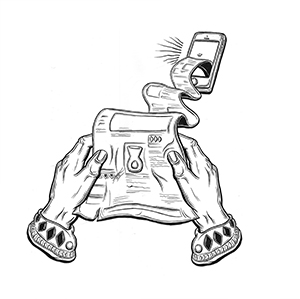
This right guarantees access to information held by the state and private bodies. The right is based on the idea that people should be free to access information in the possession of the state that has an impact on them. In an open and democratic society, it is important that a government is accountable for its actions and decisions.
The culture of secrecy that existed under the apartheid state allowed the government to cover up their abuses of power, corruption, and human rights violations. In order to remove the legacy of secrecy in government, the Constitution entrenches the right of access to information.
This right aims to ensure that the democratic government is accountable, responsive, and open. The right to information can be exercised not only against the state, but also against private entities where necessary, for example, for workers engaged in collective bargaining. It requires that Parliament set out the procedures to be followed to ensure that the right is made effective in a way that is not too burdensome financially and administratively for citizens.
The Promotion of Access to Information Act, 2000 (PAIA) informs what the public and government must follow in the exercise of the right to information.
Landmark Cases:
My Vote Counts NPC v Minister of Justice
Section 33 - Just Administrative Action
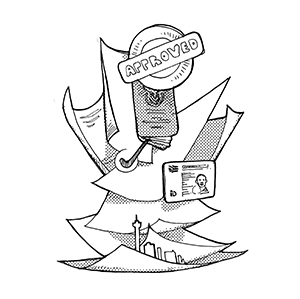
This right allows citizens to challenge the government regarding the way in which the country is governed. It allows a court to review the state’s administrative action to ensure it is lawful, reasonable, and procedurally fair.
Under apartheid, the range of discretionary powers of government officials was expanded by legislation. The courts did not have the authority to review the administration of the state whether it was reviewing the policy produced by cabinet or the laws made by Parliament. This meant that Parliament could make laws as it pleased, with no constraint from the courts.
This right is concerned with how the law is applied in practice by government officials to individuals. It deals with such things as the granting of planning permission for buildings and the issuing of trading licences. Administrative action must be lawful, meaning it must be within the powers granted to the administrator concerned. It must be reasonable, meaning it must make sense in terms of its impact on the circumstances. It must also be procedurally fair, which means the person affected must have had a fair opportunity to make his or her opinion heard on the issue. Generally, officials are obliged to give reasons for their decisions.
Parliament is required to pass a law to enable persons affected by administrative action to go to court to challenge the decision. The primary law passed by Parliament in fulfilment of the obligation is the Promotion of Administrative Justice Act, 2000 (PAJA).
Landmark Cases:
Executive Council of the Western Cape Legislature and Others v President of the Republic of South Africa and Others 1995| Albutt v Centre for the Study of Violence and Reconciliation
Section 34 - Access to Courts
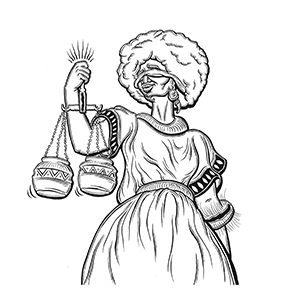
This right guarantees the right to access and use of the justice system in order to challenge any illegality, injustice, and inequality in society. The rule of law requires that any alleged illegality must be challenged by people having access to an institution that is independent from the alleged wrongdoer, such as independent courts. In any legitimate democracy, anyone may challenge the legality of any law or conduct.
Under apartheid, the role of the courts was very limited, with the inability to enquire into the legal validity of certain conduct and laws. The courts under apartheid lacked legitimacy in many respects, and many people did not see the courts as impartial and independent but rather as a tool of oppression and as an extension of the racist state.
Today, everyone is granted the right to have any legal dispute decided in a fair public hearing before a court. This right deals with civil disputes, and is separate from the right to a fair trial in criminal matters. It deals with matters such as family law disputes, disputes over rights to land, claims against insurance companies, and also claims against the government.
A major purpose of this provision is to prevent self-help and to uphold the rule of law. It can be particularly important to protect vulnerable people from being evicted from their homes or having their property seized by powerful persons using strong-arm methods.
Section 35 - Arrested and Detained Persons
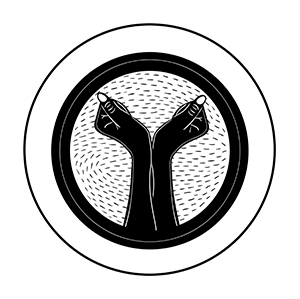
This is the longest section in the Bill of Rights, and lists a detailed set of rights – the rights of arrested, detained, and accused persons; the right to a fair trial; the right to remain silent, to be presumed to be innocent, and not to testify during court proceedings.
In the apartheid era, various laws and states of emergency allowed the government to detain people for long periods without bringing them to court or allowing them access to lawyers. All this is changed by the Bill of Rights. It protects people who are arrested, held in detention, and put on trial at each stage of the criminal justice process.
Arrested persons
The key provision is the right to be brought before courts within 48 hours and to be informed of the charge. Under certain circumstances, arrested persons are entitled to be released, with or without bail, on conditions laid down by the courts. But bail can be refused under certain circumstances such as the danger that the arrested persons will not stand trial or will interfere with witnesses.
Detained persons
Detained persons have a right to consult with lawyers of their choice. If they cannot afford a lawyer, they can apply for free legal representation if they can show that there is a serious chance of them going to jail if found guilty. They are entitled to decent conditions in detention and visits from family, religious counsellors, and a doctor of their choice.
Accused persons
Accused persons are entitled to a fair trial, which includes receiving sufficient details of the charge, a chance to prepare a defence, and appearing at a public trial without unreasonable delay. In deciding what is unreasonable, the courts will look at the seriousness of the offence, the extent to which the accused has contributed to the delay, and the degree to which presentation of the evidence has been prejudiced. There is also a presumption of innocence and, if convicted, the right to an appeal.
Section 23 – Labour
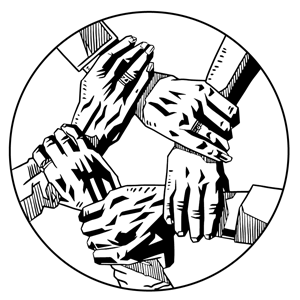
This right extensively protects workers and guarantees their right to fair labour practices, to form and join trade unions, and to participate in union activities and strikes. Post apartheid, the review of the labour legislation framework was a priority. Labour relations and labour policies have changed significantly from that which prevailed under the apartheid government.
Under apartheid, the Masters and Servants laws made it a criminal offence for a servant to talk back to their ‘masters’. Black trade unions were banned. And black workers experienced the most oppressive labour conditions.
Today, all workers have the right to fair labour practices. This means that workers have the right to form trade unions, go on strike, create independent federations, and take part in collective bargaining. Parliament has passed laws to protect workers’ rights through a system of conciliation and arbitration within tribunals. Employers also have the right to form independent federations.
